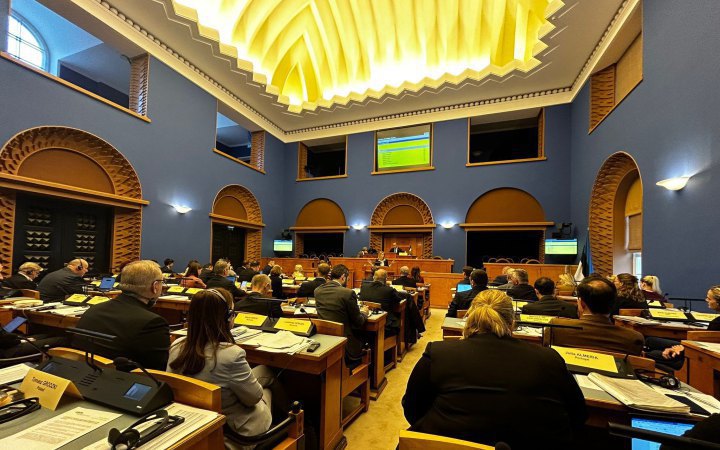Ukraine, Georgia, and Bosnia and Herzegovina have been granted candidate status in NATO. Kosovo has been a parliamentary observer and will become an associate member, and Malta will be granted associate membership.
These decisions were made by the Standing Committee of the NATO Parliamentary Assembly at a meeting in Tallinn on 23-24 March, the PA website says.
More than 40 NATO lawmakers took part in the Assembly. At the meeting, delegates welcomed Sweden, NATO's newest ally, and Swedish parliamentarians attended this first meeting as full members.
In her speech, Estonian Prime Minister Kaja Kallas stressed that NATO's door should remain open, as it makes the Alliance stronger.
"Next week, Estonia celebrates 20 years of NATO membership. "NATO has made Estonia stronger - there is no doubt about that - but our membership has also strengthened the Alliance...," Kallas said.
She called on member states to invest more in defence. "Not just 2% of our economy, but at least 2.5%. Estonia is currently investing more than 3% in defence," she added.
NATO lawmakers have also prepared their initial recommendations on how Allied Heads of State and Government should strengthen collective defence and deterrence, transform NATO, and remain fully committed to Ukraine's victory. These recommendations will be discussed at the Summit in Washington on 9-11 July this year. The Assembly's final recommendations to the NATO Washington Summit on the candidates will be agreed upon during the spring session in Sofia, Bulgaria, at the end of May.
The President of the NATO Parliamentary Assembly, Michał Szczerba, said that the number of delegates from Ukraine would be increased from 8 to 12. This will correspond to the number of delegates that alliance member states have, according to Szczerba's post on X.








